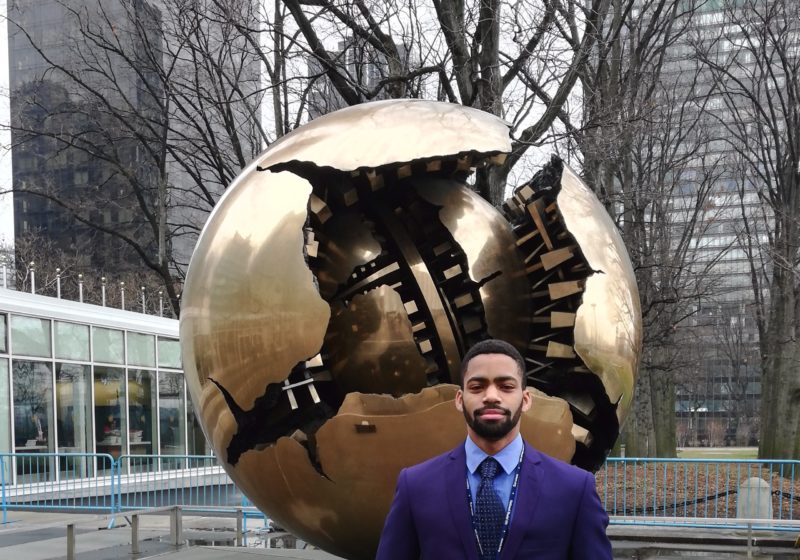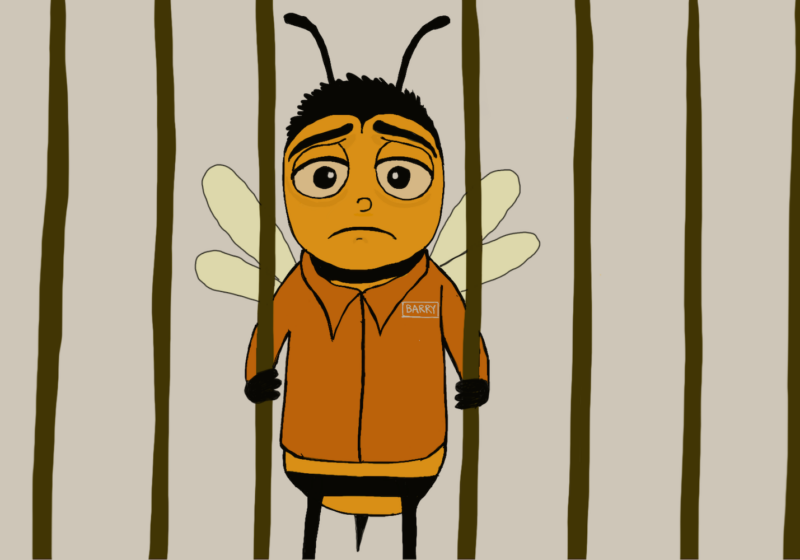Leon Harvey is a graduate student, McNair Scholar, and researcher studying Biochemistry at UR.
In 2018, Harvey graduated from Monroe Community College with an Associate Degree in Biology and later graduated with a Bachelor’s Degree from UR.
“Ever since I took my first general biology course, I have enjoyed learning about the various molecular processes that occur in organisms,” Harvey said. “As I began taking courses such as biochemistry and molecular biology, the intricately beautiful biological mechanisms continued to fascinate me more and more.”
When he’s not running chemical reactions in the lab or digging deep into scientific literature, Harvey finds enjoyment in Shotokan Karate and is an active member of Douglass Leadership House (DLH). “[There], I made a lot of amazing friends who helped me transition to UR.”
While an undergraduate, Leon worked in the Ghaemmaghami Lab, located in UR’s Biology Department in Hutchinson Hall. His research focused on investigating genetically variant alcohol dehydrogenase (ADH) protein in Drosophila melanogaster, where he studied their propensity to aggregate under increasing temperatures.
His overall goal was to further understand an evolutionary concept known as balancing selection.
“In balancing selection, a less beneficial variant of a gene persists in a species population due to a compensating advantage,” Harvey explained.“We hypothesized that the less active variant of ADH persists in natural populations because of balancing selection, and [we] proposed that the less active variant of ADH is able to fold into a more stable conformation, and is thus advantageous at higher temperatures that induce protein misfolding.”
Leon also designed experiments testing the hypothesis that protein activity-stability tradeoff is a potential mechanism of balancing selection. “This was an interesting project because it was a relatively new concept,” Harvey said. “To be part of a novel research and potentially bringing forth new knowledge is an exciting feeling.”
However, academia and research is not all roses and rainbows. Oftentimes, it takes time for undergraduates to establish their footing when transitioning into the college lifestyle, where they are forced to learn how to manage newfound independence and responsibilities on their own. “I have had a few obstacles in my academic life, and after reflecting on them, I noticed they had to do with my time management,” he said. “When I transferred from Monroe Community College, I found that the course rigor at UR was manageable; however, the pace was a lot faster than I was used to. This caused a lot of stress and burnout in my first two semesters.” After talking to family and mentors, he learned to find joy in what he was learning by creating a time management system.
“While it was important to stay focused on my studies, it was also important to take breaks and reward myself by having fun,” Harvey commented. “This helped a lot, because I found that I actually enjoyed what I was learning when it did not consume my entire life. As for time management, I still struggle with this every now and then, but I found the most effective solution is to document your entire week on a calendar. This really made me more aware of the actual time I have to complete assignments and has been the best solution for me.”
When asked how COVID-19 and had impacted his graduate education and research work in the Ghaemmaghami Lab, Harvey expressed how learning had changed and how he adapted. “The transition to online learning has been difficult for a number of reasons,” Harvey said. “One, we no longer had the collaborative environment that motivated some of us. Most of us got around this by meeting in socially distant settings, but it was not an easy transition, nonetheless. Research had to be halted, however once safe, research continued with limited capacity.”
After graduating from UR, Harvey decided to pursue graduate school in Rochester for Biochemistry. Currently, he serves as a rotating student to help determine which lab to continue his graduate education in. When asked about advice he would give to students pursuing research, Harvey emphasized the importance of experiencing pitfalls.
“Whenever you experience downfalls in research, remember that it is a part of the research experience,” Harvey said. “There are countless successful people in science that experience failure. It is like a rite of passage. What matters is that you reflect and seek to always improve while maintaining your enthusiasm.”




